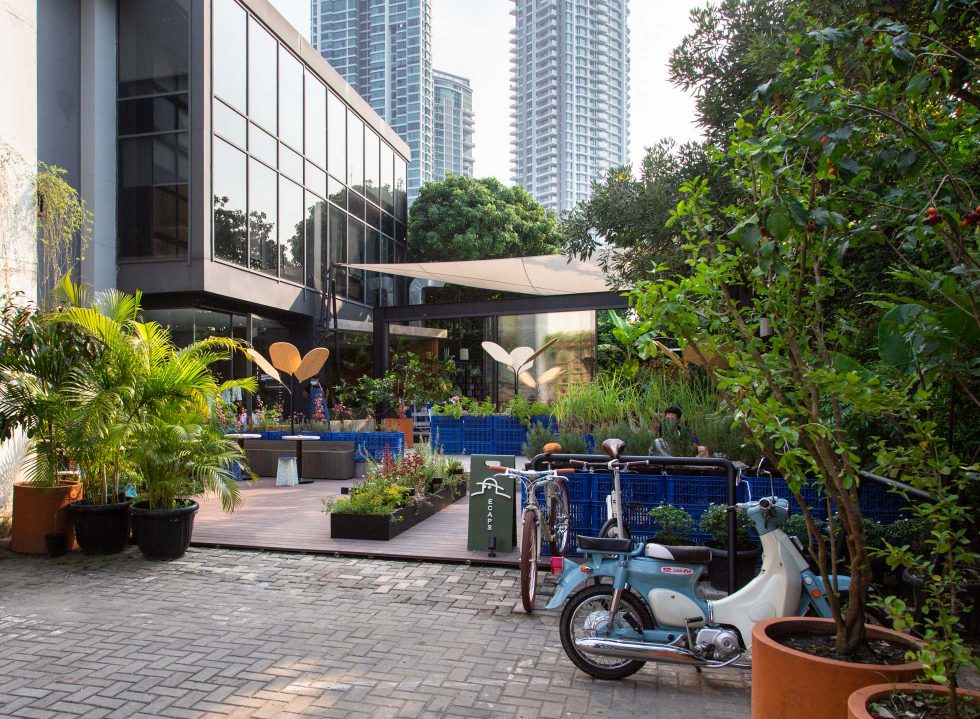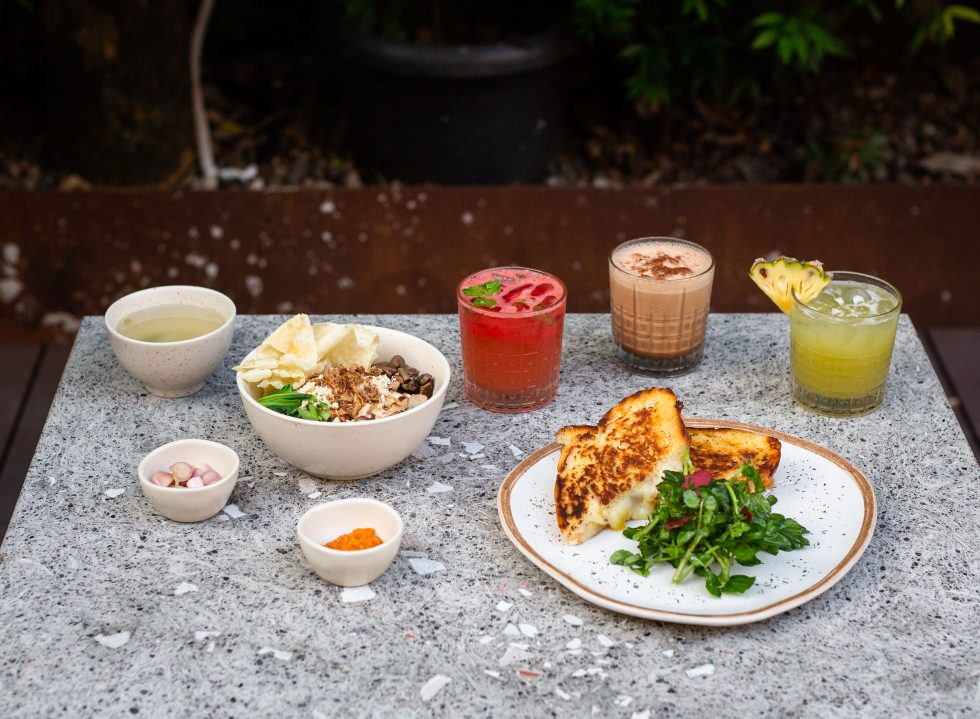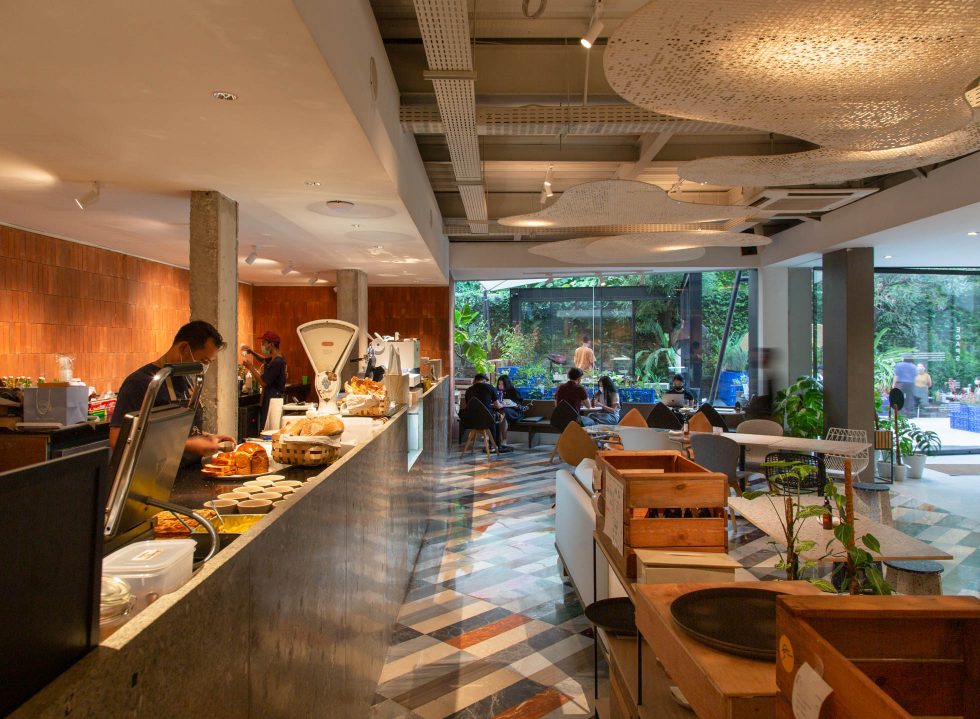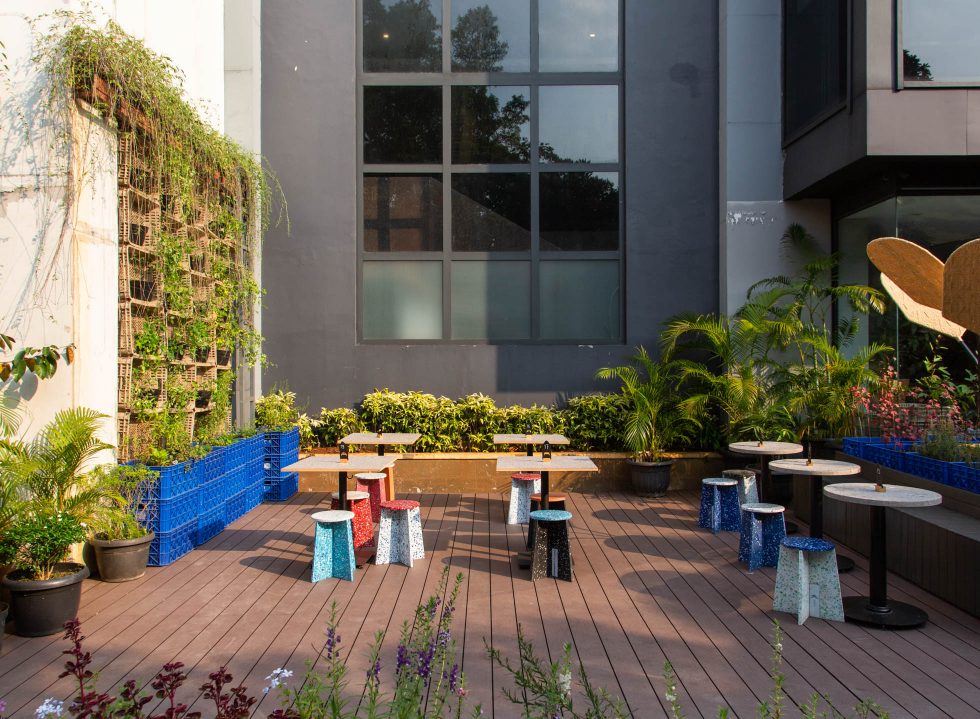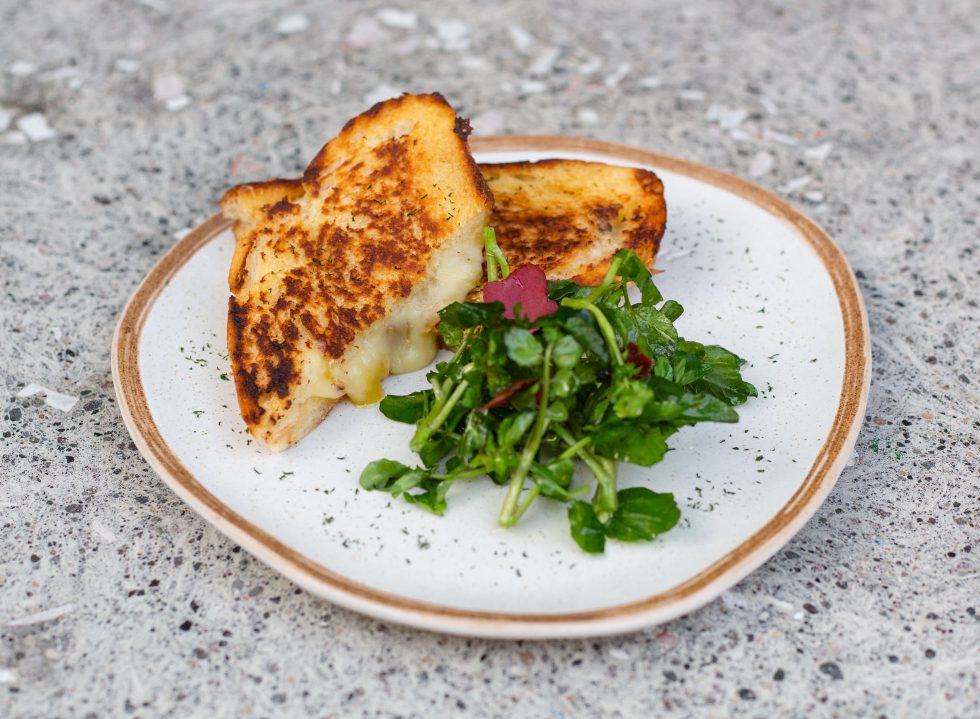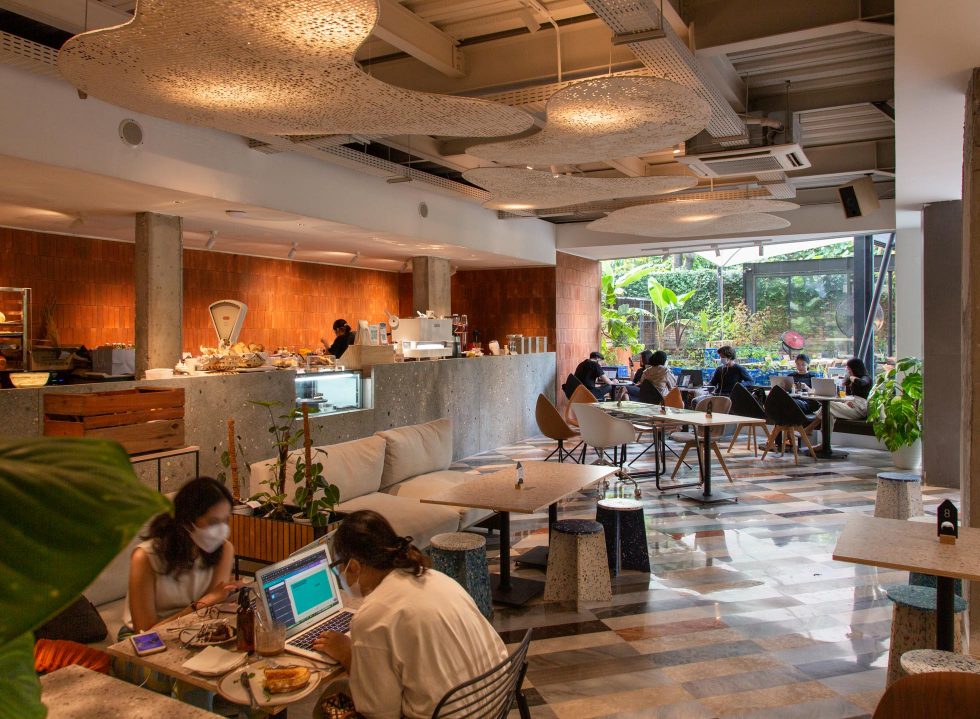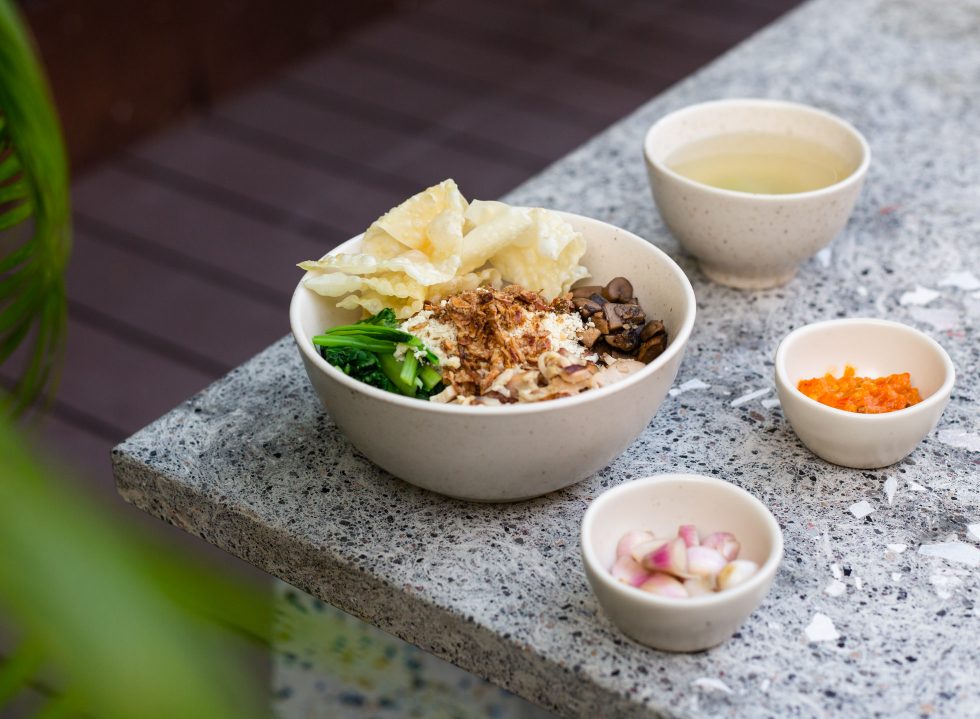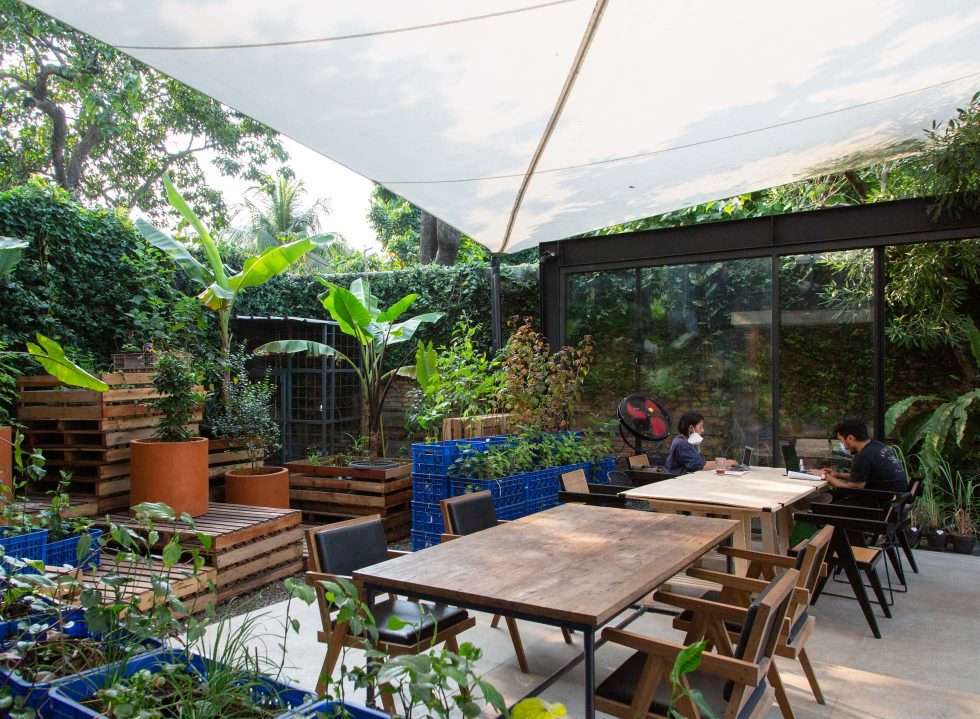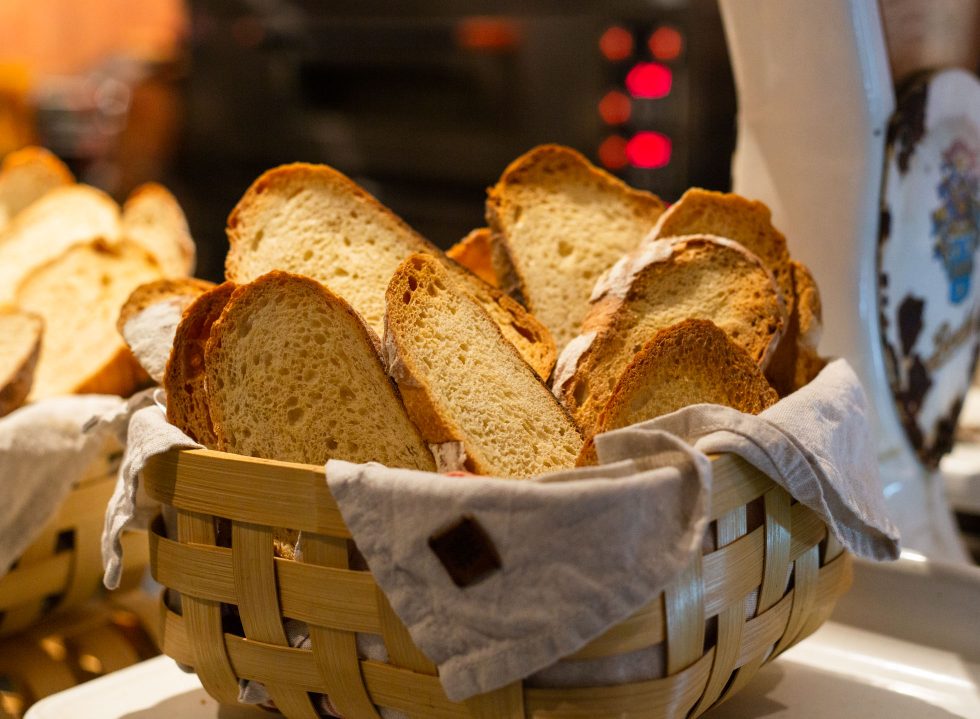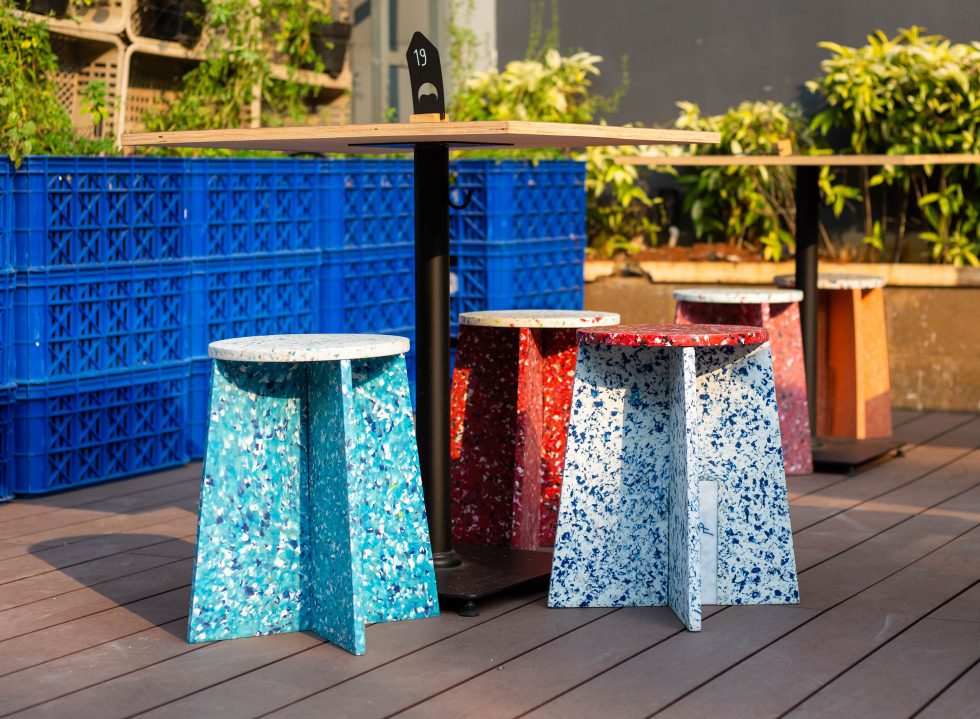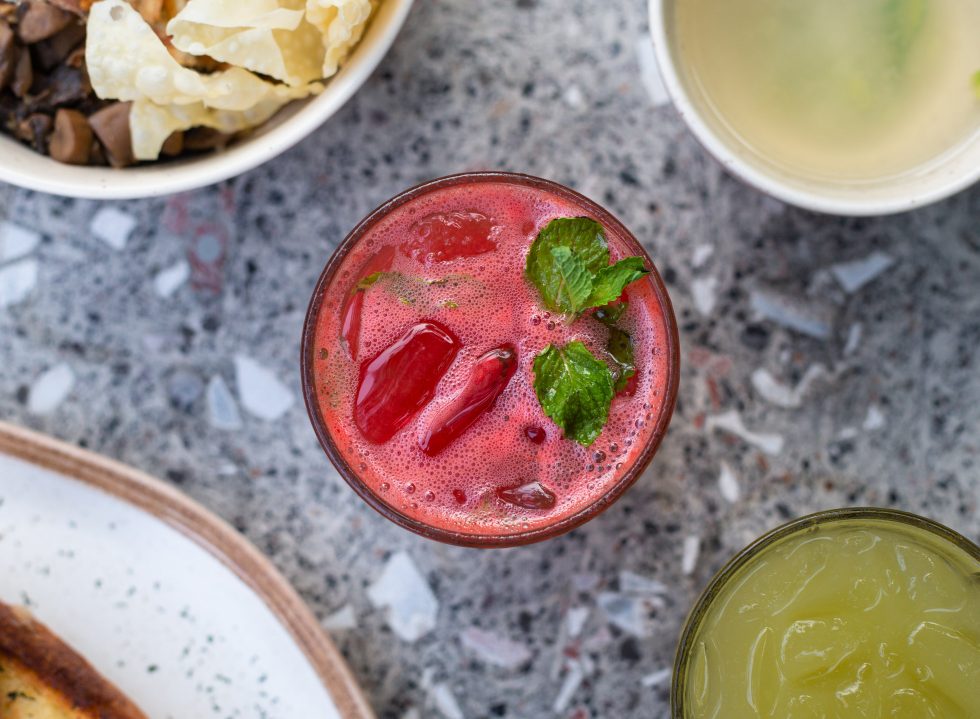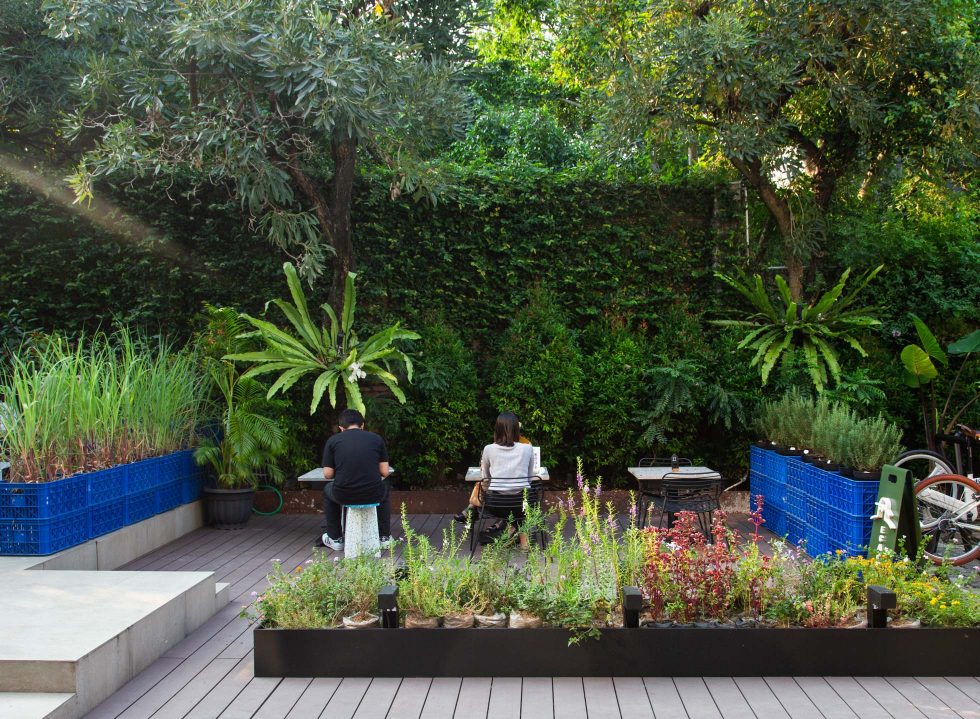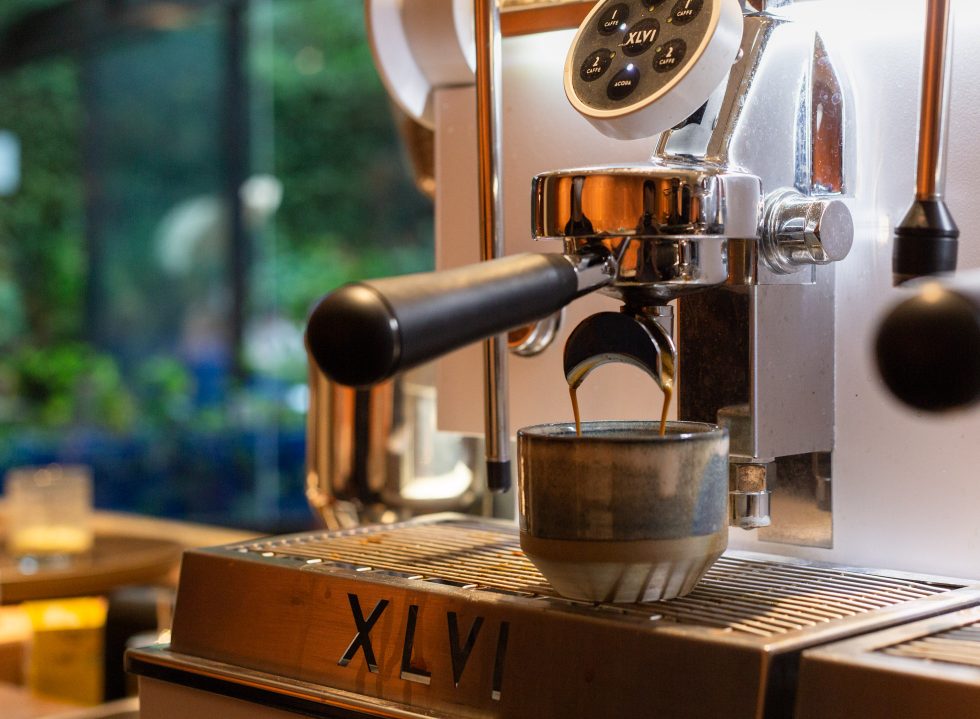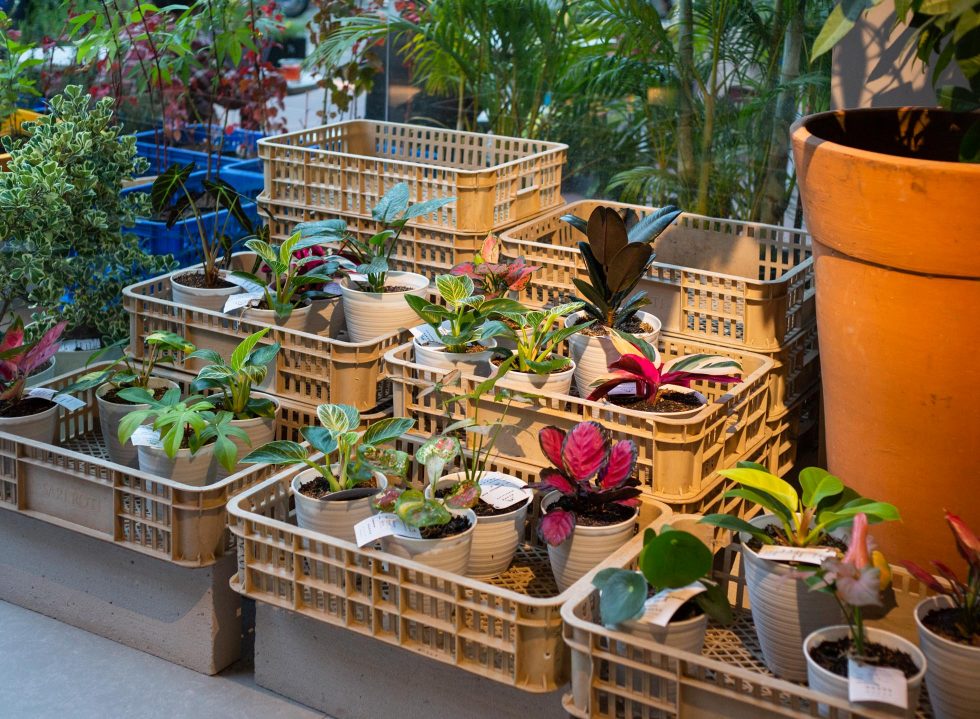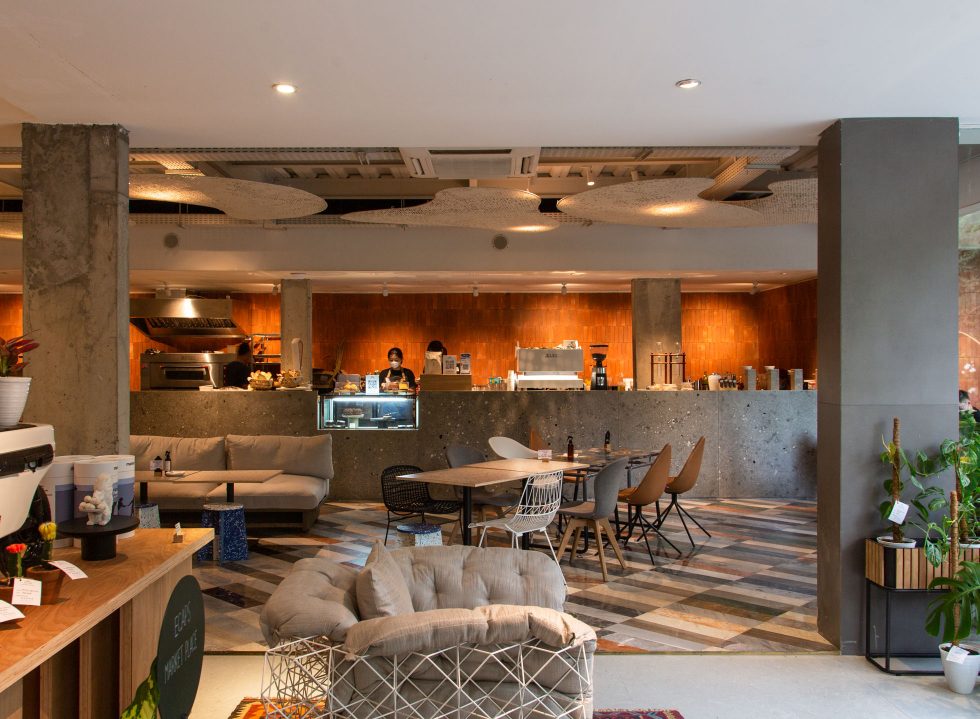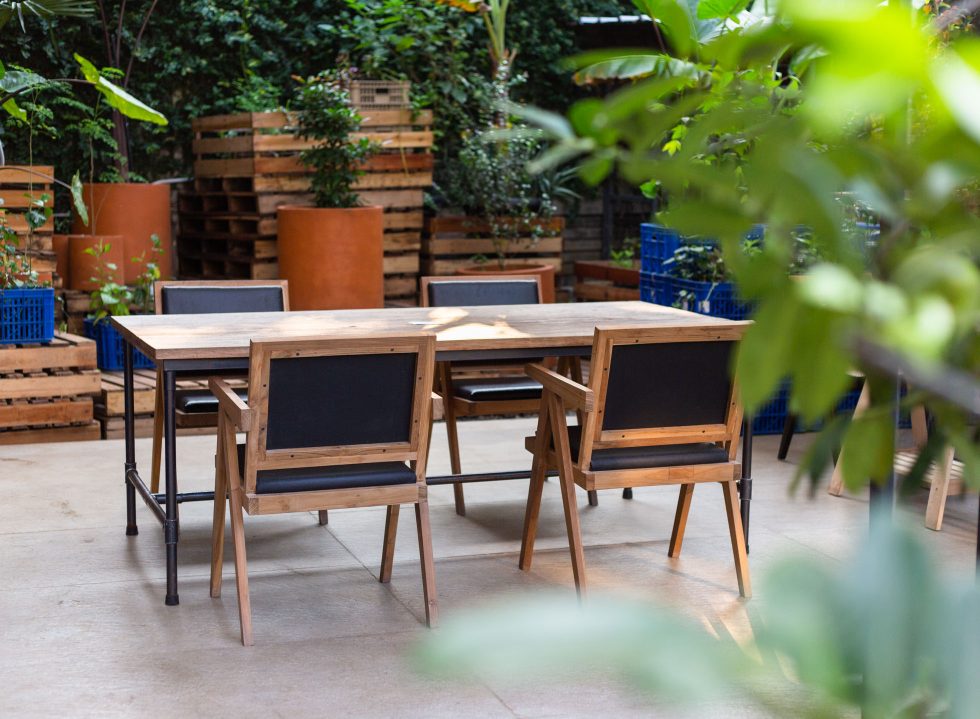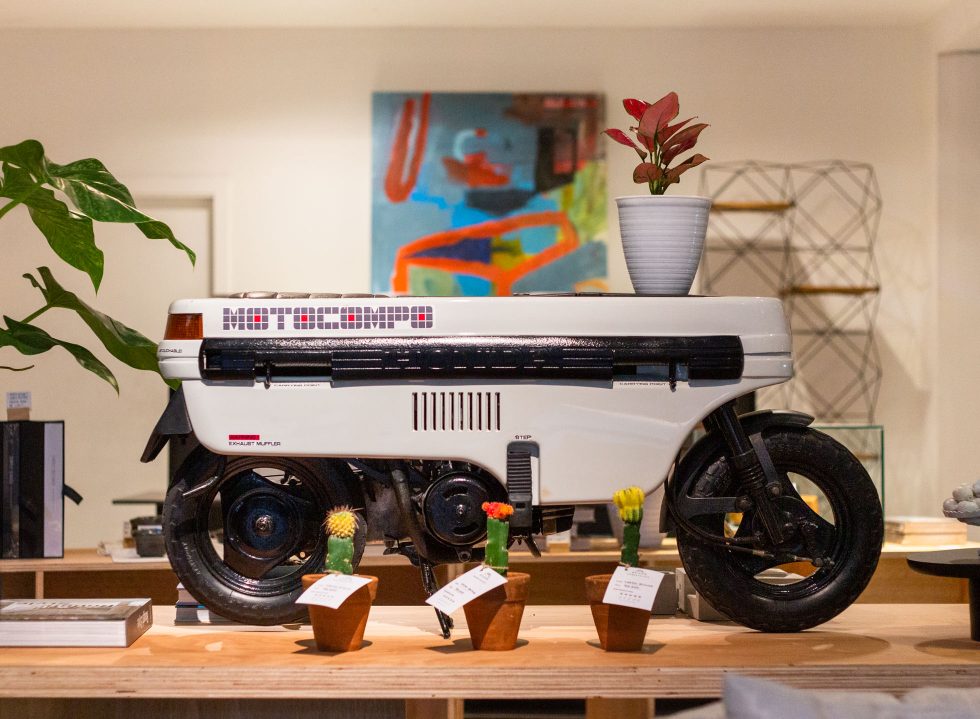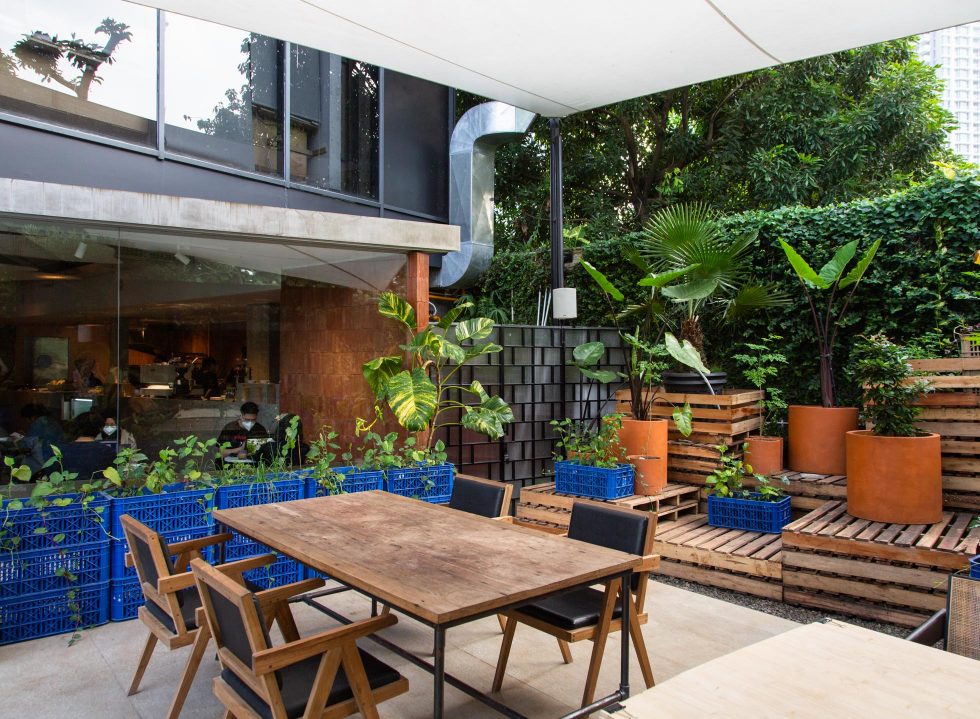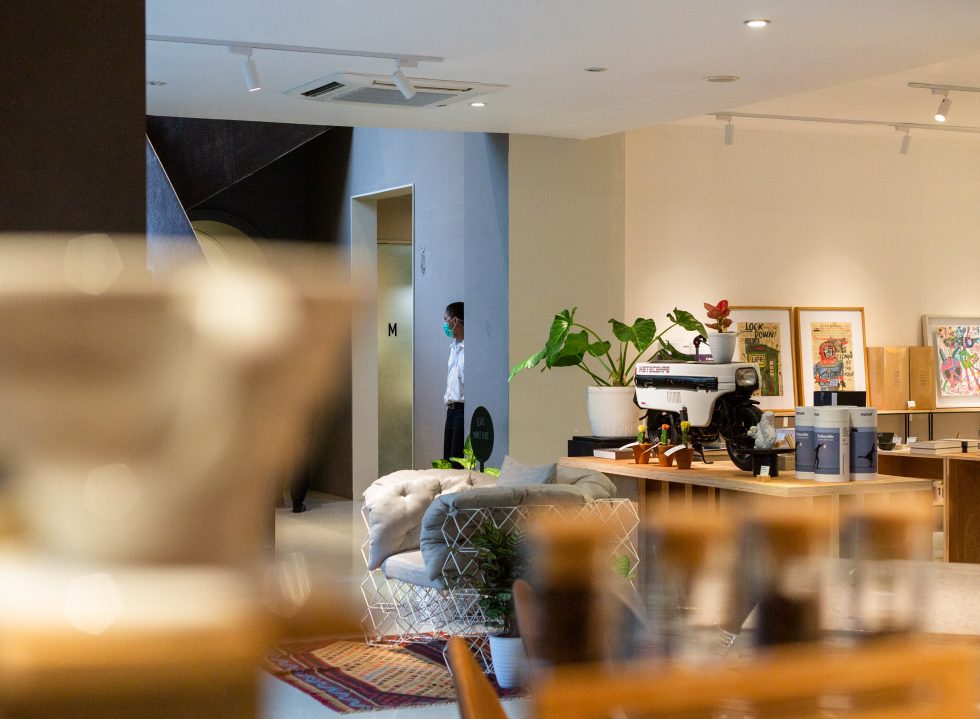From becoming more mindful in the way we live to how we treat our surroundings, the past year has humbled many to change their ways for the better. ECAPS is an establishment in Kemang that came out of this growing consciousness, solidified by the owners’ mission and desire to take better care of the environment by building a space that not only serves as a dining spot, but also one that espouses circularity and sustainability in its approach.
Sitting at the back of the Magran Living Building, ECAPS is sprawled like a mini garden, grabbing attention for its unique interior elements that are repurposed from waste. Step on the patterned floors and you’ll find out that they are made of leftover marble cuts from one of the founders’ interior and architecture projects or sit on the stools and you’ll be surprised to know that they are made from plastic water bottle caps. The blue planters that surround the outdoor space also used to be fruit crates, where over 30 organic herbs are now grown and harvested for the kitchen.
“With ECAPS, we wanted to make something ironic, which is repurposing trash and waste into beautiful and functional objects,” said co-founder Audrey Bernanda, who also co-founded Aedi Interior Design Bureau. “Before last year, many of us didn’t put much thought on environmental issues, but today we see the drastic changes brought by the pandemic. We return to nature and we think back about what we have contributed to the global waste problem.”
Curation of food and drinks here also tap into ECAPS’ wholesome initiative, this time through “good food, good source”. Befittingly represented through its mascot, Cap the Urban Farmer, most offerings here are homemade, like the ECAPS Pappardelle Beef Ragu with its house-made pasta and fresh ingredients picked from their herb garden to the popular Bakmie Maju Jalan, a traditional noodle with chicken and mushroom toppings. Pastries and bread are also freshly made, along with coffee brews, like the signature Escap(e), their version of cappuccino, that uses single-origin, traceable beans and grass-fed milk.
It’s easy to bracket ECAPS as a mere dining or hangout place, but it is a space that strives to be anything; a cafe, an exhibition space, and even a shop that features local and international interior goods. Most importantly, it is a place that spills with stories and values that reflect the consciousness and mission of the dedicated people behind the brand, takeaways that guests—or Ecapsians, as they are intimately called—can draw, connect and ultimately support, upon visiting.
